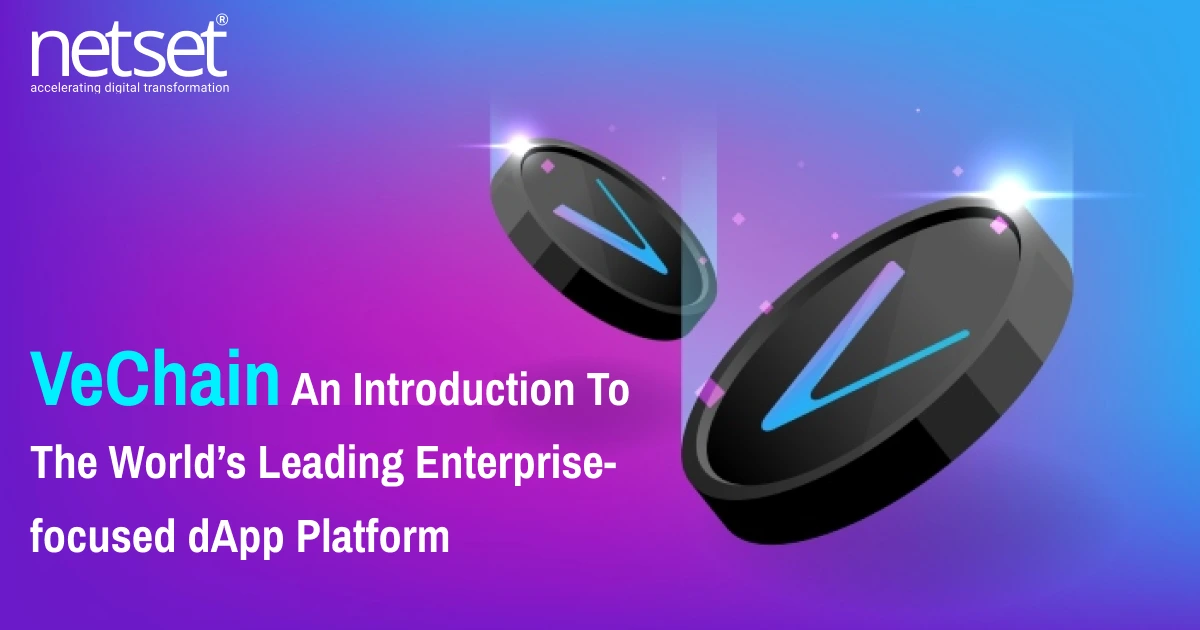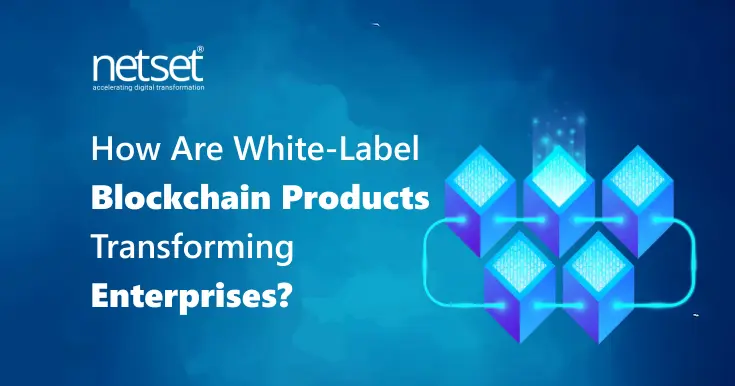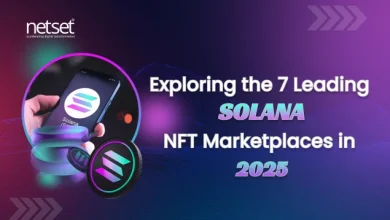How to Build a Secure & Scalable Blockchain App in 2025
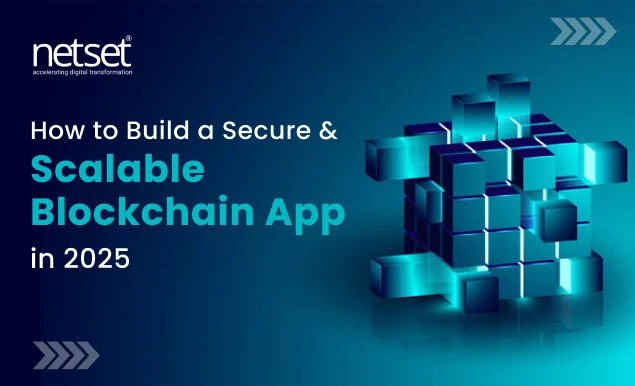
Blockchain has become an unstoppable force bringing digital innovation to a lot of industries. From finance and healthcare to logistics and gaming, businesses are seeing blockchain for secure, decentralized solutions.
But you cannot just get custom blockchain application development with few lines of codes and upload it on the app market without deep analysis. It is because if your app is not scalable and secure, it will not perform well in the real world where competition is so strong.
Why blockchain apps matter in 2025?
Blockchain apps that are also known as dApps, are becoming important for businesses that focus on transparency, trust, and automation. With increasing concerns around data breaches and system hacks, more companies are turning to searching for a blockchain software development company to make sure about the security and decentralization.
At the same time, user bases are growing, so apps also have to scale without performance issues. No matter if you are creating a supply chain tracker or a DeFi platform, your app must handle all the high traffic according to the modern business needs.
Some stats about blockchain development that you must consider
If you have decided that you are going with blockchain development, then it is a great investment, and if you are confused, then the below statistics will surely help you understand the booming blockchain market.
- In the coming decade, blockchain development is going to see more than a 50% surge among the industries, reaching $1,900 billion in investment.
- Nearly 90% of businesses are constantly exploring the ways in which they can integrate blockchain technology.
- Advancements in layer 2 scaling solutions like Ethereum’s roll-ups and Bitcoin’s Lightning Network will see a further surge.
- 55% of businesses in a survey reported that blockchain boosts their security.
What makes a blockchain app secure and scalable?
Security and scalability are two pillars of a successful blockchain app and when we talk about security, it consists of:
- Data integrity using tamper-proofing the information recorded on the blockchain
- The safety of smart contracts is made highly secure with proper testing and audits.
- Authentication and access control using methods like 2-factor authentication and private keys
- Securely storing the off-chain data with encryption
For scalability, a blockchain consists of:
- Transaction throughput, where your app must be able to handle a growing number of users and transactions.
- Network compatibility between blockchains to improve flexibility.
- Modular architecture components should be detached so the app can be updated or expanded easily.
- Smooth consensus mechanism to pick networks that support faster consensus.
Creating a blockchain app that delivers both elements requires careful planning and solid technical execution. So, now let us find out the steps to achieve this.
Key steps to create a secure and scalable blockchain app
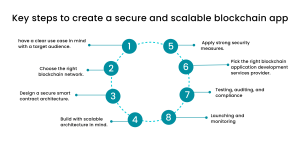 The steps are going to be complex, but with the help of a mobile app development partner, the whole process can be smooth.
The steps are going to be complex, but with the help of a mobile app development partner, the whole process can be smooth.
Step 1- Have a clear use case in mind with a target audience.
Start by identifying the problem your blockchain app is going to solve. Are you improving the payment systems, creating a digital identity solution, or allowing asset tokenization? Be clear about your industry and the needs of users. Such clarity helps in picking the right blockchain development service provider and platform to design a successful app architecture.
Step 2- Choose the right blockchain network.
Different blockchains have different capabilities, like Ethereum is famous for dApps for smart contracts, but you might consider Solana if you want to target speed, or Polygon for low gas fees. Evaluate these based on speed and cost, community and developer support, security features, and interoperability with other networks.
Step 3- Design a secure smart contract architecture.
Smart contracts are known as the backbone of most blockchain apps. They automate actions like payments or data access. While you design it, you must focus on writing clean and optimized code, avoiding common bugs like re-entry or overflow, using upgradable contracts if needed, and performing smart contract audits before deployment. This is where you benefit from experienced teams that provide smart contract development services.
Step 4- Build with scalable architecture in mind.
Your app’s backend should support increasing loads for which you can use Layer 2 solutions (like Optimism or zkRollups), caching and load balancing, and the microservices architecture. Also, decide what goes on-chain and off-chain to make a balance between speed and security.
Step 5- Apply strong security measures.
A security first development, can reduce the chances of data leaks and hacks. It is best to integrate security at every level by encrypting all the user data and using secure management practices to safeguard your solution. For this you can ask your app development partner to apply some biometric or multi-factor authentication. When the app is launched they can perform regular testing for any future security compromises.
Step 6- Pick the right blockchain application development services provider.
In case you do not want to have the headache of hiring an in-house team, hire experts who have a deep understanding of both blockchain and your industry. A reliable custom blockchain development company will offer you end-to-end development support. They have experience with different blockchain protocols with proven expertise in security practices. Companies have the required infrastructure and resources, which will cost you a lot if you go for in-house development.
Step 7- Testing, auditing, and compliance
Before the launch of the app, testing plays a very important role across devices, networks, and user scenarios. Here your team will conduct functional testing with basic usage, load testing to see how the app performs under high pressures, security audits that can be done by third-party auditors, and regulatory compliance checks, especially if you belong to the finance or healthcare sector.
Step 8- Launching and monitoring
Now the final step is launching the final solution, and once it is live, you have to look for smart contract vulnerabilities, user activity trends, network performance, and user feedback for improvements. You must also release the updates and security patches as the blockchain ecosystem evolves.
How can NetSet Software help you in blockchain app development?
The team at NetSet Software has dedicated expertise when it comes to blockchain development, which is why we are recognized as the top blockchain app development company globally.
You get the full range of blockchain development services with the company, right from dApps and smart contract audits to enterprise-grade platforms, with the promise of best quality and compliance. NetSet can be your reliable partner in blockchain success.
Final Thoughts
We cannot deny the fact that a simple blockchain app will not deliver you success in the modern era. It is important to mix strong fundamentals with some future ready technology choices. You must understand your users, select the right tools and focus on both performance and security.
Working with the right blockchain software development partner will really help you in launching your solution faster and more reliably. As more businesses plan to have dApps, only the smart and scalable ones will stand strong in the competitive market.
FAQs
How much will it cost to create a blockchain app?
You can prepare your budget as per the complexity in your app. For example, if you plan to create a basic app, the cost starts around $5,000. There is no upper limit.
Which blockchain will be best when it comes to scalability?
There are Ethereum Layer 2s, Solana, and Polygon technologies that are strong candidates when it comes to scalability; however, each one of them has its own pros and cons.
What makes a blockchain app truly secure?
Security comes from encryption of data, smart contract audits, secure identification verification, and regular testing. Good development practices also play a key role.
Can blockchain apps connect with old hardware and software?
Yes, why not? With the help of APIs and oracles, blockchain apps can easily exchange data with traditional databases and servers. But it will require an experienced blockchain app development company to achieve the same.
How long does it take to create a blockchain app?
A simple one can take around 3-4 months to create, but if anything goes into advanced requirements, the time frame can even cross 9 months, including the testing and audits.

